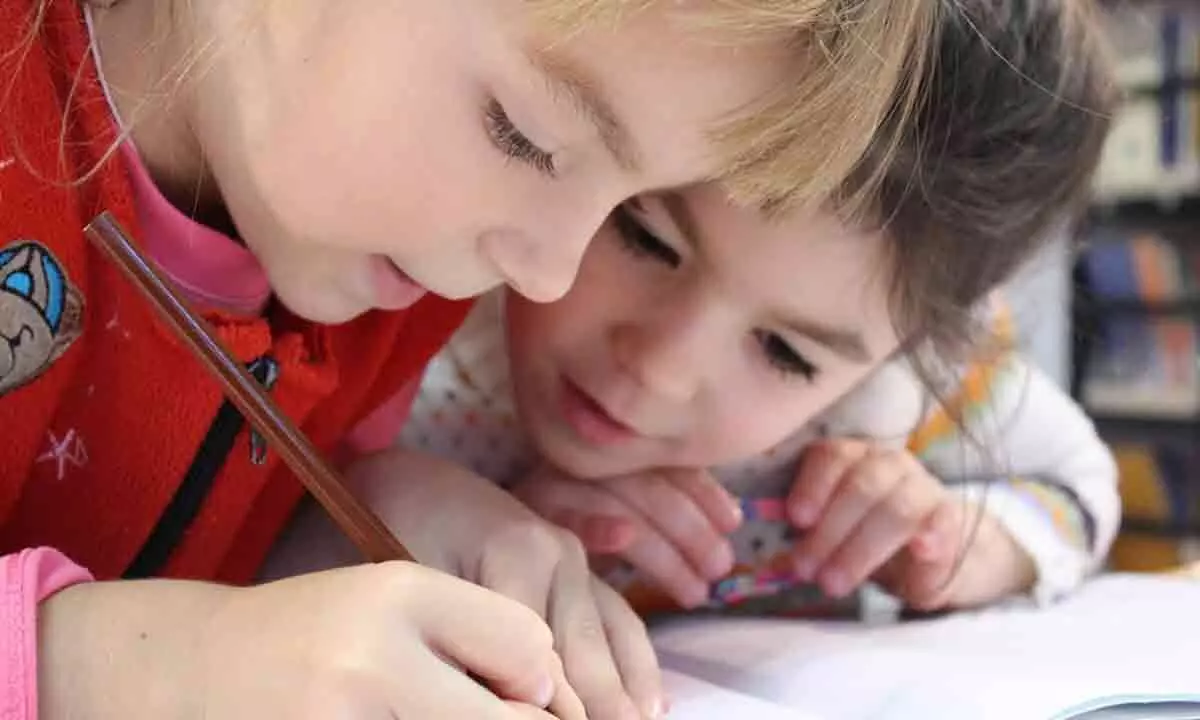Nurture self-confidence and growth

Avoid unhealthy comparison among students
With the exams concluding, most students and families start receiving messages from relatives, friends, and others asking about the results of the exams. The family is the first place where children are evaluated, even before they speak, based on their behaviour and skills. The earliest months of life are full of messages that shape the self-concept.
Comparing children is dangerous, and we should avoid it. In the age of social media, kids have access to what other children are doing, and they tend to compare their lives with others, and this comparison can be harmful to them. When comparisons constantly favour one child over another, it can be demotivating and stressful. However, they may develop an attitude where they accept that they will or can never do better than their friends or siblings. This can affect the way they deal with failures. Here are a few tips to avoid unhealthy comparisons between children.
• Students learn what they live with: if a child lives with criticism, he learns to condemn. Listening is the first step in tackling any situation and getting a solution to it.
• Offering unrequested advice: Sometimes parents believe that when students bring problems up, they seek advice, which isn’t true, but what they want is for parents to hear. Advising is an appropriate response, but not when it’s unrequested.
• Passing judgment—it usually isn’t encouraging to hear. “You know”, “It is your own fault”, “You really shouldn’t have done that” This type of response suggests that the listener is playing judge rather than walking in your shoes.
• An important aspect of authority versus submission is that the problem is when and how parents exercise discipline and administer punishment. Scolding appears to be the most frequent form of punishment, and comparing their children with others or with their peers is harassment and damage to the growth of children both physically and mentally.
When strictness approaches rigidity, the boundaries and standards become so sharply defined as to confine rather than guide. The child’s resultant feelings of hostility, resentment, and fear may generalize toward all authorities. An adolescent’s behaviour towards authority is shaped by the way they have learned to react towards their parents during their childhood. If they passively accept authority under stress, conditionally accept it, rebel against it overtly, or feel resentful towards it, these attitudes will have an impact on their behaviour in future stages of their lives.
Prescriptions for a specific parent-child relationship cannot be laid down. Parents who lack insight or are deeply involved in their difficulties may face troubles. Healthy acceptance of their children without comparisons is warm support for the child without being overly possessive. Children who are attached to their parents are moderately happier than those whose relationships are intimate. Adolescents do need complete confidence in the love of their parents. They should know that their parents will always support them, no matter what the situation is.
It’s common for children to compare themselves to other people. Everybody has moments when worries and self-doubt overwhelm them. Sometimes insecurity strikes even the most self-assured individuals, whereas comparison can be a catalyst for change.










